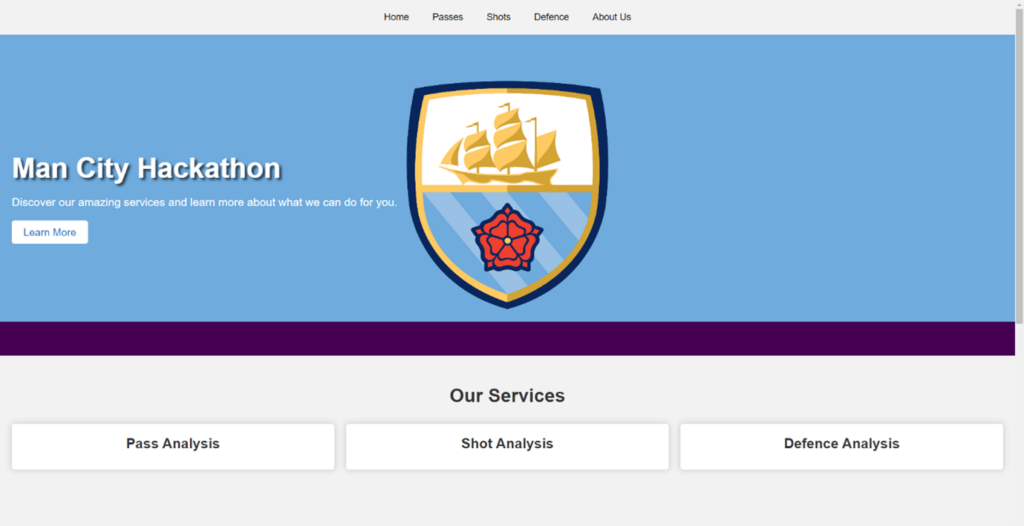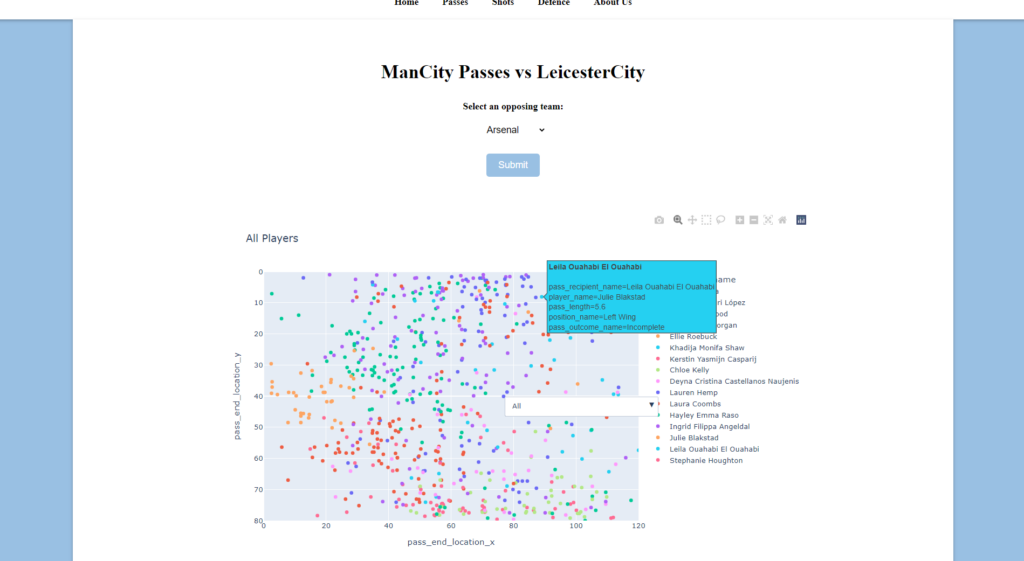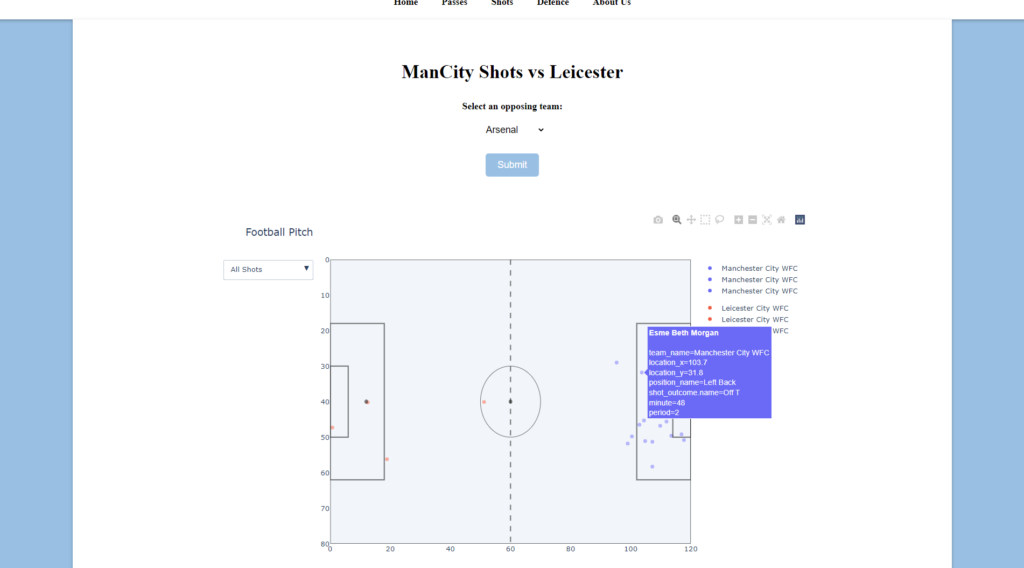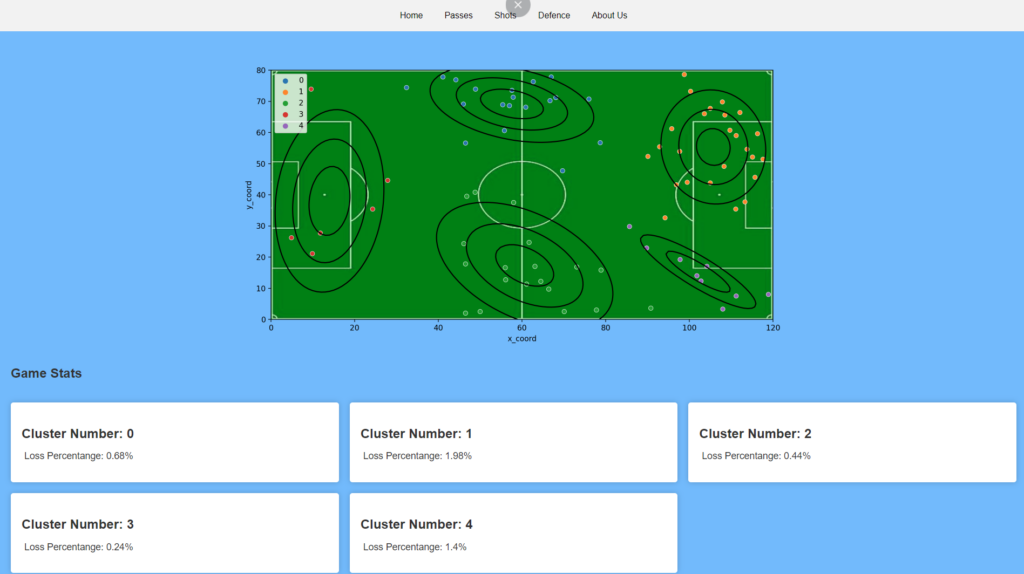15 May 23
Congrats to our Hays and MCFC Hackathon Finalists!
On March 23, three of our Rockborne consultants – Annalisa Smith, Rachel Nunn, and Matias Sanchez Wilson – competed in the Hays and Man City Football Club (MCFC) Hackathon.
We’re thrilled to share that their project has been shortlisted for the finals!
What was the assignment?
Annalisa, Rachel, and Matias were given less than a month to create a tool to visualise game data, to help inform the Man City coaching team’s decisions and ultimately boost team and individual player performance.
The data was provided by MCFC partners Second Spectrum and StatsBomb and included data from six different Man City women’s games. Our consultants used Python to analyse, manipulate, and visualise the data. Then, the team used Django as a web framework to implement their Python code and make it interactive.
A breakdown of the project
The main website hosts three dashboards that visualise passes, shots, and defence data. Here’s a look at the homepage:

The Pass Analysis dashboard visualises every single pass during a specific game.
Each data point (which is colour coded by the intended recipient of the pass) shows the end location of the pass, who made it, who was meant to receive it, the length of the pass, and what the outcome was (if it was intercepted or received).
Here’s a snapshot of the pass dashboard:

The Shot Analysis section plots out each shot made throughout a game, showing which player made the shot, where they were on the field, what period the shot was made, and whether they scored:
Lastly, the Defence Analysis looks at where dispossessions during a specific game occurred, and the subsequent play event that led to said dispossession:

To do this, the team used a clustering algorithm utilising the x and y coordinates of the dispossession event, which were provided by StatsBomb.
It was beneficial to cluster the coordinates into groups instead of splitting the pitch into even sections because Man City’s play style could change depending on the game, the formation of players, etc. The clustering algorithm was chosen to be Gaussian Mixed Model (GMM) because the groups showed non-circular shapes, thus a GMM allowed us to group events into oblongs (or circles if required).
The Hackathon Finals
Our team is heading up to Manchester on May 24th to pitch their project to a panel of judges. They’ll be up against 9 other finalists, and have a chance to win a prize bundle including £1,000 in tech vouchers and more.
Congratulations and best of luck to Annalisa, Rachel, and Matias!
Related posts
Life at Rockborne20 Jun 25
Federated Learning: The Future of Collaborative AI in Action
Federated Learning: The Future of Collaborative AI in Action The way we build, deploy, and govern AI is evolving, and so are the expectations placed on organisations to do this...
09 Sep 24
Tips to Succeed in Data Without a STEM Degree
By Farah Hussain I graduated in Politics with French, ventured into retail management, dabbled in entrepreneurship, a mini course in SQL and now… I am a Data Consultant at Rockborne....
15 Apr 24
Game Development at Rockborne: How is Python Used?
Just how is Python used in game development? In this blog post, we see the Rockborne consultants put their theory into practice. As the final project in their Python Basics...
